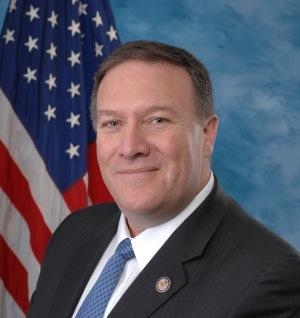Fri, Nov 06, 2015
Representative Mike Pompeo (R-KS) Authored The Amendment
The U.S. House of Representatives on Wednesday approved an amendment to the highway bill offered by Representative Mike Pompeo of Kansas. The Pompeo amendment requires the Government Accountability Office (GAO) to conduct a study of diversions of non-commercial jet fuel tax revenues to the Highway Trust Fund.

National Air Transportation Association President and CEO Thomas L. Hendricks praised the amendment. "NATA appreciates Representative Pompeo’s (pictured) leadership on this important issue," Hendricks said in a prepared statement. "His amendment provides critical visibility to enable Congress to fully understand the impact of this revenue diversion to general aviation consumers, businesses and the Airport and Airway Trust Fund.”
Since 2005, federal excise taxes on the sale of non-commercial jet fuel to the general and business aviation fleets have been diverted into the Highway Trust Fund, depriving the Airport and Airways Trust Fund of much needed funding. This “Washington idea,” the so-called “fuel-fraud” provision, was quietly enacted in response to a concern that the 2.5-cent per gallon difference between the highway diesel and jet fuel tax rates would somehow incent truckers to use jet fuel. This ignored the fact that in 2005 the average price of diesel was $2.44pg and Jet A $3.75pg. Today, the average price of diesel is $2.86pg and Jet A is $4.71pg. This even greater disparity in price further removes any incentive to use jet fuel in highway vehicles.
An archaic and overly bureaucratic refund mechanism and subsequent transfer to the aviation fund is available, yet seldom used by many operators. Notably, the IRS provides no mechanism for non-commercial general aviation end-users to apply for the refund. Thus the Airport and Airways Trust Fund receives no revenue from the majority of general and business aviation jet fuel sales because non-commercial end users are not permitted to apply for the refund themselves.
“We urge the GAO to review the questions outlined in the Pompeo amendment and the underlying 2005 law and importantly, whether the significant cost disparity between jet and diesel fuel justifies the necessity of this provision," Hendricks said. "We also hope GAO examines whether fuel additives and diesel engine design changes since 2005 also render the provision nothing more than a bureaucratic roadblock draining the Airport and Airway Trust Fund of revenues needed for airport improvements and the deployment of a modernized air traffic control system.”
(Source: NATA news release)
More News
He Attempted To Restart The Engine Three Times. On The Third Restart Attempt, He Noticed That Flames Were Coming Out From The Right Wing Near The Fuel Cap Analysis: The pilot repor>[...]
Make Sure You NEVER Miss A New Story From Aero-News Network Do you ever feel like you never see posts from a certain person or page on Facebook or Instagram? Here’s how you c>[...]
From 2009 (YouTube Edition): Leading Air Show Performers Give Their Best Advice for Newcomers On December 6th through December 9th, the Paris Las Vegas Hotel hosted over 1,500 air >[...]
Aero Linx: NASA ASRS ASRS captures confidential reports, analyzes the resulting aviation safety data, and disseminates vital information to the aviation community. The ASRS is an i>[...]
“For our inaugural Pylon Racing Seminar in Roswell, we were thrilled to certify 60 pilots across our six closed-course pylon race classes. Not only did this year’s PRS >[...]
 NTSB Final Report: Rutan Long-EZ
NTSB Final Report: Rutan Long-EZ ANN FAQ: Turn On Post Notifications
ANN FAQ: Turn On Post Notifications Classic Aero-TV: ICAS Perspectives - Advice for New Air Show Performers
Classic Aero-TV: ICAS Perspectives - Advice for New Air Show Performers ANN's Daily Aero-Linx (06.28.25)
ANN's Daily Aero-Linx (06.28.25) Aero-News: Quote of the Day (06.28.25)
Aero-News: Quote of the Day (06.28.25)



